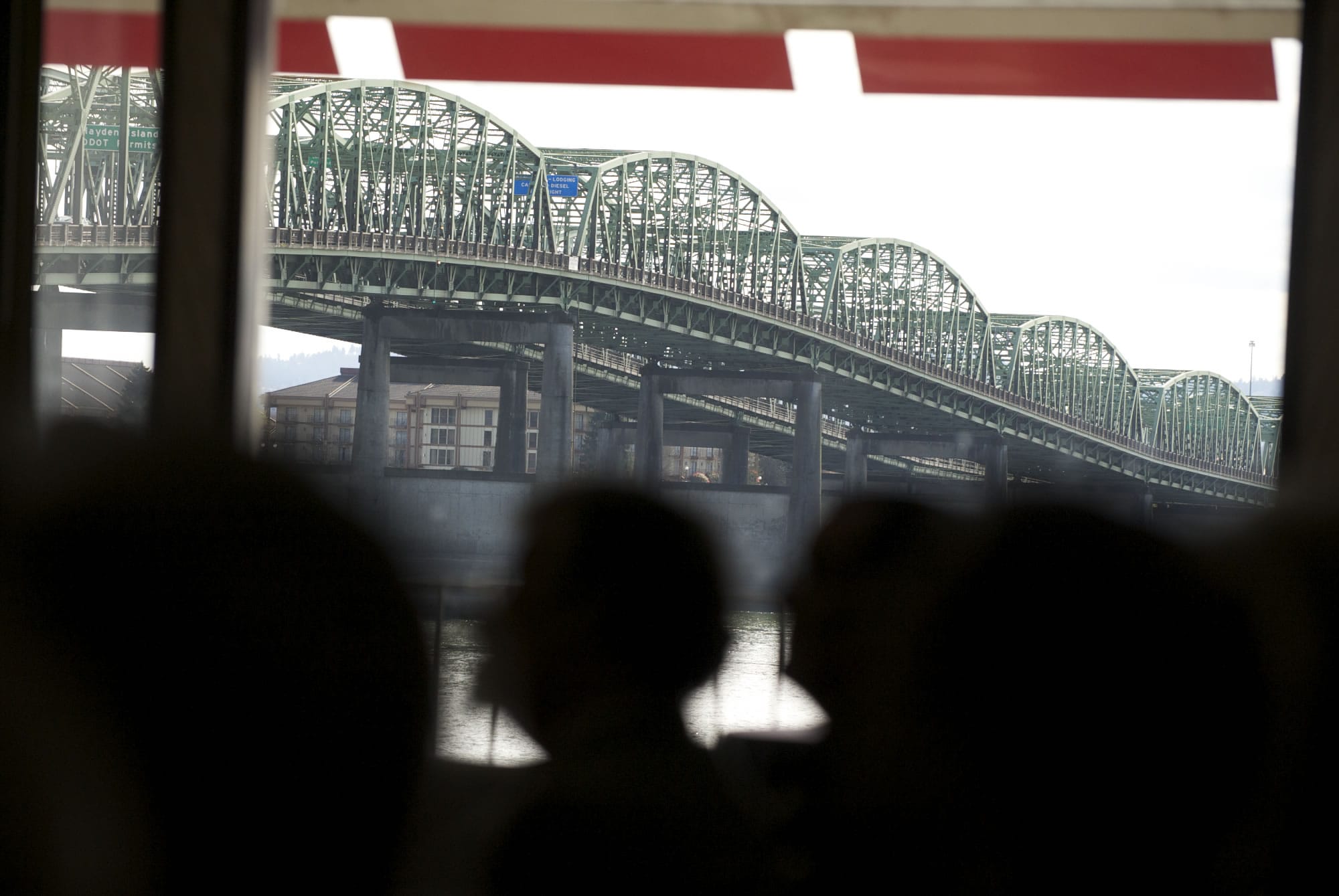Talk with reporters Aaron Corvin and Eric Florip at 11 am Tuesday in a live chat about The Columbian’s series.
Editor’s Note: A full version of this story is available in today’s print edition. Also, this series will be available for purchase Tuesday on amazon.com for Kindle e-readers and apps.
Gov. Jay Inslee’s recent visit to Vancouver sent a clear message that Clark County’s views about the Columbia River Crossing are an important part of the regional debate over the $3.4 billion plan to replace the Interstate 5 bridge with a new highway and light rail structure. As the shouting is rising on both sides of the debate, the governor told local supporers to get louder.
“Decibels count in this business,” Inslee said.
But while local opinion matters, decisions about money are being made elsewhere — in Washington, D.C., and in the state capitols of Olympia and Salem, Ore. The project appears headed for what many believe is a make-or-break moment in the Washington Legislature this spring.
At the local level, several issues stand out as central in the public debate: how tolls will affect household budgets, commuting patterns, and businesses; whether the commuting benefits of light rail are worth the costs and perceived disadvantages; and whether the bridge will actually improve our economy. Each has generated its share of conflict, confusion, and doubt.
Three manufacturers whose industrial products may be too large travel by barge beneath the new bridge have mixed feelings as they weigh the possibility of business loss or even relocation against the potential of securing lucrative bridge construction projects.
Tolls that could exceed $4 each way during peak hours would have a deep affect on Clark County residents, but many people say they’d cross the Glenn Jackson Bridge to avoid those tolls. And there’s still no plan in place to pay operational costs for the proposed light rail line into Clark County.
But despite mixed public opinions, key leaders in both Oregon and Washington are fighting for the project that may or may not happen any time soon.
Second of a three part series. Yesterday: Competing poltical wills block the way. Tuesday: With or without the Columbia River Crossing, where do we go from here?




